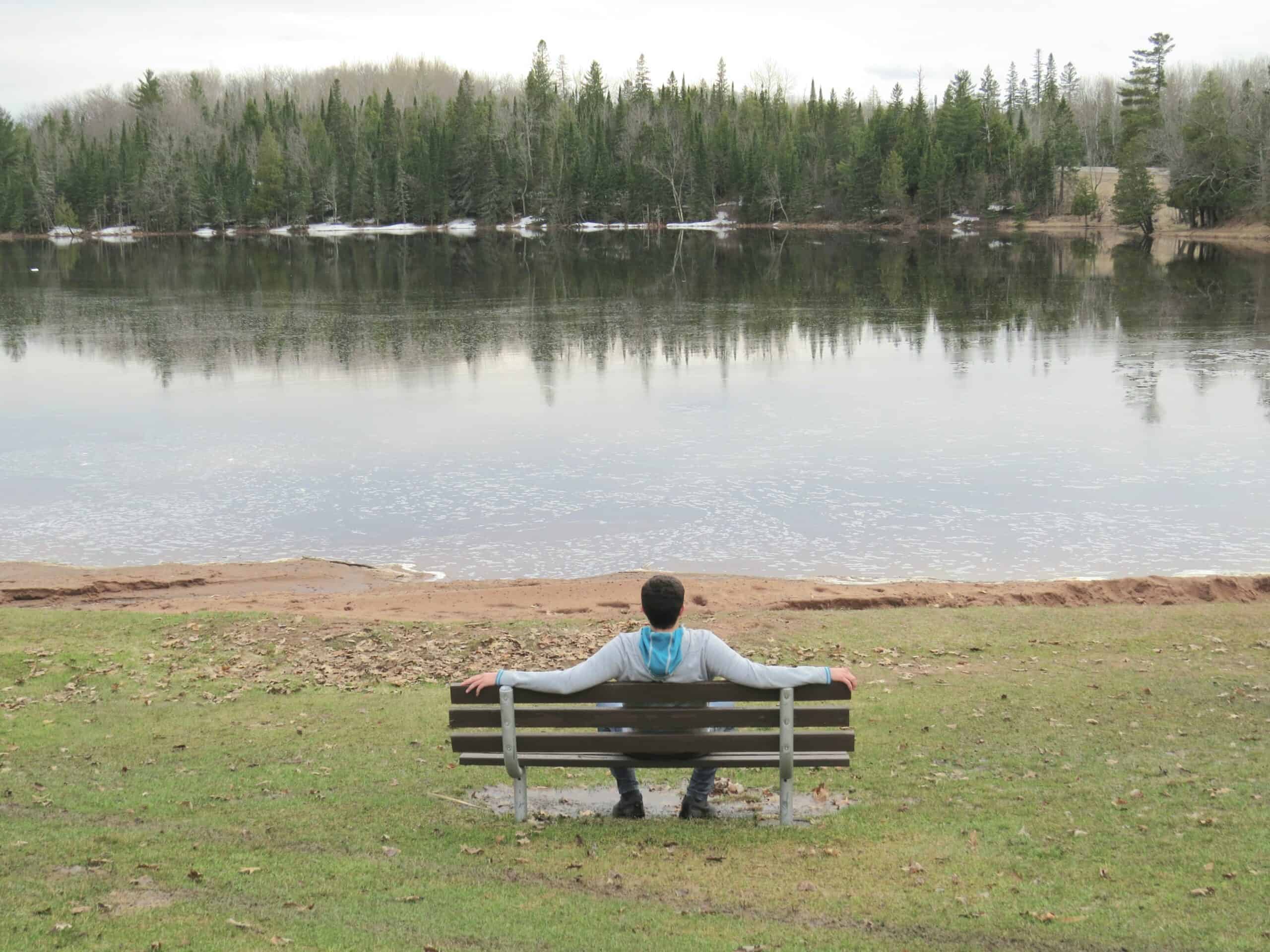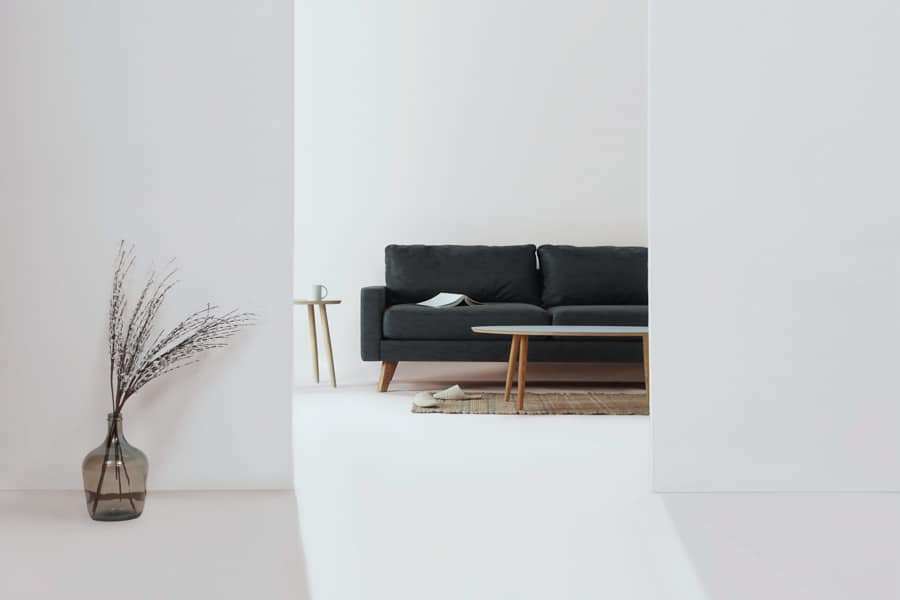Countless people, especially Millenials, are swearing off material possessions and embracing a minimalist lifestyle to simplify their lives.
But what are the pros and cons of minimalism? Is it worth giving up your stuff for the sake of simplicity?
In this post, I’ll share my experiences with minimalism and give you my honest opinion on whether or not it’s worth it. Here’s a summary:
| Pros of minimalism | Cons of minimalism |
| Susceptible for over-thinking | People in your life won’t understand |
| You’ll become more disciplined | Susceptible to over-thinking |
| Easier to find things | The burden of living up to expectations |
| Increases clarity | Gifting customs get awkward |
| More opportunities for enriching experiences | Minimalist aesthetic rules the narrative |
| Gives you courage | Many fail to move past the physical benefits |
| Teaches patience and contentment | Exposes insecurities |
| Transition is hard | |
| Can feel isolating |
7 Advantages of minimalism
Let’s start with the good news: minimalism has plenty of benefits.
1. Your spaces will look and feel way better after you’ve decluttered
The minimalist aesthetic is not for everyone. There’s an argument for a maximalist design that portrays fullness. However, I believe minimalist design is timeless.
There’s something gorgeous about empty space. It represents a blank canvas, which is beautiful and practical.
For example, in your home, you may sleep better in a tidy and uncluttered bedroom. At work, you may be able to focus more easily on your tasks in a clean and organised office. And in your car, you’ll be less stressed when there’s no clutter to distract you from the road.
If this is your style, then minimalism is a fantastic tool for achieving an uncluttered, efficient and inspiring space.
Read more: Minimalism vs. Maximalism: Differences, Similarities, and Use Cases
2. Minimalism teaches discipline
Minimalism has been a game-changer for me in so many ways. It’s made me more disciplined and aware of my decisions. And I’m sensitive to how I spend money, shop and commit to things. I understand the risks of saying yes, and I fight for white space in all areas of life.
Minimalism has helped me stay organised and stick to new commitments. It’s a constant reminder to prioritise what’s important, leading to a more fulfilling and purposeful life.
3. Minimalist spaces make it easier to find things
We’ve all been there. Your keys are nowhere to be found. Or you can’t find your phone, even though you just had it in your hand a minute ago. If this sounds familiar, it’s probably because your environment is cluttered.
When there’s too much stuff, it’s easy to misplace things. Even if you’re generally organised, keeping track of everything can still be challenging.
By reducing your belongings to essentials, you can create a streamlined environment that’s easier to manage. Minimalism can also help to reduce decision fatigue.
Read more: An Argument For Wearing The Same Clothes Every Day
4. Minimalism helps you define value and think clearly
It’s not unusual for a minimalist lifestyle to push you to define what’s valuable. This process can be difficult, but it’s worth it.
For me, my wife and dog are top priorities. I also value my health, personal growth and experiences over material possessions. I became comfortable walking away from lucrative careers in exchange for autonomy and flexibility.
And shortly after becoming a minimalist, my mental bandwidth expanded to think about my impact on the planet and animals.
Giving yourself permission, time and space to figure out how you want to craft your life is the gift of minimalism.
5. Minimalism gives you more opportunities to experience
It’s easy to want more and accumulate debt to the point where you’re trapped in stuff. You’re in a cycle of thinking about what to buy next or trying to give away or sell something because you’ve run out of space—or want more money to buy the latest and greatest.
Minimalism gives you a fighting chance to redirect your energy from acquiring to pursuing richer experiences.
For instance, you request an all-day pass to ride on a toboggan/sledge instead of receiving a gift you don’t want or need. Better yet, you and your gift-giver can enjoy the activity together.
Or when you challenge yourself to stop buying non-essential items for the next six months, use that extra cash to invest in starting a hobby where you can learn new skills and meet like-minded people.
6. Minimalism gives you courage
Being stuck with an overabundance of stuff is one thing. But many of us are way past the expiry date in our relationships, careers and over-leveraged lifestyles. We put these situations in a too-hard basket as we fear the toll it may take on our lives.
The risk, however, is that we go on. Unhappy. Unfulfilled. Resentful, even. Until something happens to us and we’re forced to change.
Then comes minimalism. The ruthless enabler, you need to hit the reset button on your life proactively.
Having a minimalist mindset means you live with urgency. Out with the bad, so you can make way for the good-starting today. Don’t wait until it’s too late.
7. Minimalism teaches patience and contentment
The world tells us we need to have more. The problem is that the world is a bottomless pit. There’s always something new that comes out tomorrow. And if you’re not careful, you can get caught up in the cycle of never having enough.
Minimalism helps you to be content with what you have. It teaches you to appreciate the things around you and be patient with what comes next.
9 Disadvantages of Minimalism
Now that we’ve looked at the pros of minimalism, let’s look at a few potential drawbacks.
1. Most people won’t appreciate or understand why you’re a minimalist
The status quo is abundant. The more you have, the better. So when you decide to ditch 50% of your things, it’s a shock to those around you.
I’ve been a minimalist for nearly a decade, and some friends and family still think I’m either deprived or poor.
Though they don’t say it to my face, I can see that they feel sorry for me. So they end up giving me things I don’t want or act confused when I decline their offers.
Sure, it’s annoying. Especially because I publicly write about minimalism on this website and in our book. But I’ve come to realise that some people won’t ever understand. And that’s okay. Acceptance is critical here.
2. You risk over-optimising and over-thinking
Minimalists are incredibly intentional to the point where they try to engineer every aspect of their lives. This perspective is helpful to an extent; however, if you’re not vigilant, you become paralysed by analysis because you’re gunning for perfection.
I’ve been guilty of this in the past. I’ve spent way too much time researching the pros and cons of specific products or new commitments instead of going with the flow.
It’s a delicate balance to determine how far you go with your intentionality. To make matters worse, some minimalists compare the number of possessions they have with others—the reverse of keeping up with the Jones.
Read more: Examples of Extreme Minimalism (And Why It’s Not For Everyone)
The lesson: as long as your minimalist choices don’t hurt yourself or others, it’s okay to go with your gut and enjoy the process.
3. Minimalists carry the burden of being minimalists
When you declare to the world that you’re a minimalist, you’ve officially signed up to be accountable for acting like a minimalist 100% of the time. This is especially true if you’ve been vocal about your new anti-consumerist lifestyle.
The moment you let yourself indulge, you’ll get one of two responses:
- A sense of relief that you’re letting yourself be impulsive and excessive
- Judgement and accountability of your philosophy
Point No. 2 manifests itself in comments like, “I thought you were a minimalist?” or “I didn’t know minimalists could have/do that.”
The truth is, we’re all human. And the more you talk about your minimalist lifestyle, the higher the expectations are for you to live up to it—which isn’t always possible or sustainable in the long term.
Whether you’re a full-time minimalist or just dipping your toes in the water, it’s essential to do what feels right for you. If that means breaking the rules from time to time, then so be it. Just don’t let anyone make you feel guilty about it.
4. Gift-giving and receiving can be an awkward mess
The thing about minimalism is that it’s not just about you and your items. It’s also about the people in your life. So when it comes to gift-giving (and receiving), things can get a little messy.
For starters, some friends and family will think you don’t like their gifts because you don’t have a use for them. They’ll feel offended or hurt, even though that wasn’t your intention.
It’s tough because, on the one hand, you want to be considerate and appreciative of the thought behind the gift. Conversely, you don’t want a bunch of stuff you don’t need.
A good rule of thumb is to graciously accept the gift and find a way to either use it or regift it to someone who will appreciate it more. As for giving, try to focus on experience gifts or things that are truly meaningful to the person.
Read more: How to Graciously Handle Unwanted Gifts as a Minimalist
5. Minimalism is often put in a box and portrayed as a particular aesthetic
When people think of minimalism, they often conjure images of stark white walls, empty rooms and an overall lack of personality. Or perhaps chique Scandinavian or Japanese decor. But that’s not the full story.
At its core, minimalism is a lifestyle choice that helps you focus on the things that are most important to you. It’s a way to declutter your physical and mental life so you can make room for the things that matter most.
Of course, there’s no right or wrong way to be a minimalist. Some people choose to live with less stuff because it makes them happy. Others do it for financial reasons or to reduce their environmental impact.
And let’s not forget, we all live in different economic and cultural situations. So while minimalism is a choice for the privileged, minimalism is a state of reality for others.
6. Some people fail to move past the physical benefits of minimalism
Folks often mistake minimalism for a result. Let’s say you minimised your things but aren’t feeling different. So you think, “Well, that was a waste of time.”
But minimalism isn’t about the stuff. It’s about the person. The benefits are psychological and emotional, not exclusively physical. So if you declutter your space but don’t feel any different, that’s normal.
The key is to keep exploring and experimenting until you find what works for you.
7. Minimalism can be confronting
Minimalism has a way of exposing where you’re at mentally. Committing to reducing your things and commitments frees up some time to spend with yourself, which can be overwhelming for many people.
This space may highlight imperfections in yourself and in others. A confronting exercise indeed.
But just because someone is further along in minimalism doesn’t make them better than you. We’re all just doing the best we can with what we have.
So take your time, go at your own pace and cut yourself some slack. After all, minimalism is supposed to make your life simpler – not harder.
8. Transitioning to minimalism can be hard
The initial momentum of minimalism, where you’re discarding, deleting, and reimagining, is fun and new. It represents a new beginning. Hope. But then something happens.
The enthusiasm starts to dwindle, and you become bogged down by the details—the seemingly endless decisions. The process becomes daunting, and you might begin to doubt yourself. You might even think, “Is this really worth it?”
When that happens, remember why you started on this journey in the first place. What were your motivations? What did you hope to gain? Keep those at the forefront of your mind because they’ll help carry you through the tough times – which brings me to the last con of minimalism on this list.
9. Being a minimalist is lonely
This is one of the more controversial cons of minimalism. On the one hand, you might find that letting go of things and people frees you up to pursue your passions and connect with like-minded individuals.
Yet on the other hand, you might feel isolated from friends and family who don’t share your values. And that can be tough.
Here’s the thing: you don’t need to do minimalism the same way as everyone else. You can find a version that works for you and your lifestyle.
So if you’re the only minimalist in your friend group, that’s okay. You can still enjoy time with them—and maybe even sway them to your way of thinking (just kidding, kind of).
The key is to find a balance that works for you. If you’re feeling lonely, try reaching out to others in the minimalist community or sharing why this lifestyle is important to you with loved ones.
The pros and cons of minimalism: final thoughts
So here you have it: my take on the pros and cons of minimalism. It’s not a perfect lifestyle – but what is?
It’s up to you to decide whether minimalism is right for you. Just remember that there’s no wrong way to do it. Go forth and declutter your life (or don’t). The choice is yours.
What are your thoughts on minimalism? Have you found that the pros outweigh the cons or vice versa? Let me know in the comments below.






I really enjoyed this post! It’s fascinating how minimalism can be perceived in such contrasting ways. While I appreciate the sense of freedom that comes with owning less, I’ve also experienced the struggle of letting go. It’s a balancing act between finding joy in simplicity and feeling deprived of experiences or belongings that bring me comfort. Thanks for shedding light on both sides!
I am a forensic investigator I collect evidenses and also a computer forensic eidenses and have them in my office which clutters all aroind and know where to get them when needed. I have a lot of laptops and disk drives but they are marked as well. Is it bad when I can help the law enforcement and society in law full actitvity. I do a lot of testing and gadget testings so I have of tools strewn around and know to locate them when needed and was an artist and was judged as creative inspite of my clutterdness, is it wrong? What can you say?
Hi…
My husband is a hoarder. I’m a minimalist. What can I do to change his way of thinking?
I am a minimalist.
Neighbors come to my house and offer to give me stuff such as pictures for the walls. They think I am poor and cannot afford to buy things. One younger neighbor walked in and blurted, “Your house is empty!
When I visit their houses, I feel claustrophobic. Every space and corner is decorated and filled with furniture. I want to flee their houses in order to breathe.
I first started watching YouTube on minimalism because I don’t want to leave all this “stuff” for my children to have to clear out when I’m gone. I follow The Minimal Mom, and I love how she breaks down ideas. Today, I tackled the worst room and sorted like with like. I made excellent progress and was able to make 2 donation bags and 2 trash bags. The room is about 75 percent done. I see the floor! Chaos equals stress to me. I’m exhausted, but I feel great!
I will say that the longer we quietly do this, giving out the same, kind explanation, the more others seem to pause and think about it, even conveying guilt that they have not attempted to consider similarly (for the climate). That. Is. Priceless.
Hi, I’m Michelle, a relatively new vegan and aspiring minimalist. I loved the article but IMHO the fact that minimalism is good for the environment should be listed at the top!
Thank you Michael for this; I can relate to just about everything you mentioned. Especially the part about sometimes feeling lonely with friends who don’t share the same values or interest in minimalism.
(Maybe in time…) In the meantime, I have the support of helpful websites such as yours!
Thanks, Diana. And yes, it’s it will be interesting to see what people continue to value over time.
Thank you so much. Every item that I donate frees my spirit. Someone is always there who needs what I don’t need. I’m embracing minimalism and it’s having an impact on me. Even in being more particular when I go to the supermarket-what is good for me and what is good for Mother Earth?
Thank you, Michael. I love this site.
What a beautiful perspective and energy. Thanks for sharing, Mary.
Minimalism increases your free time. You spend less time shopping for things (you don’t really need) and have more time to pursue your interests or investigate new hobbies.
Yes, creating time and space is a huge advantage of minimalism. Great share!
When you have a hobby you will aquire more thigs you don’t need and end up cluttering your space, get a hooby that would prevent in gatting too much things,like fishing or rifle hunting you eat what you catch.
Thank you Michael for another deeply thoughtful and balanced article. I am always inspired by your thoughts and encouraged to re evaluate my situation in relation to minimalism and life in general. I particularly value your reminder about the benefits of a minimalist lifestyle, that it’s not just about being virtuous and having less stuff but about the very tangible mental, emotional (and spiritual )benefits that one can experience.
My pleasure Sally. It’s pretty surreal when you can feel the mental benefits of minimalism. Thanks for sharing 🙂
Loved your honesty ,so refreshing , like you almost were saying “”Go Home if your going to judge my lack of Stuff “!
Ha! Thanks, Francine. Glad you could relate.